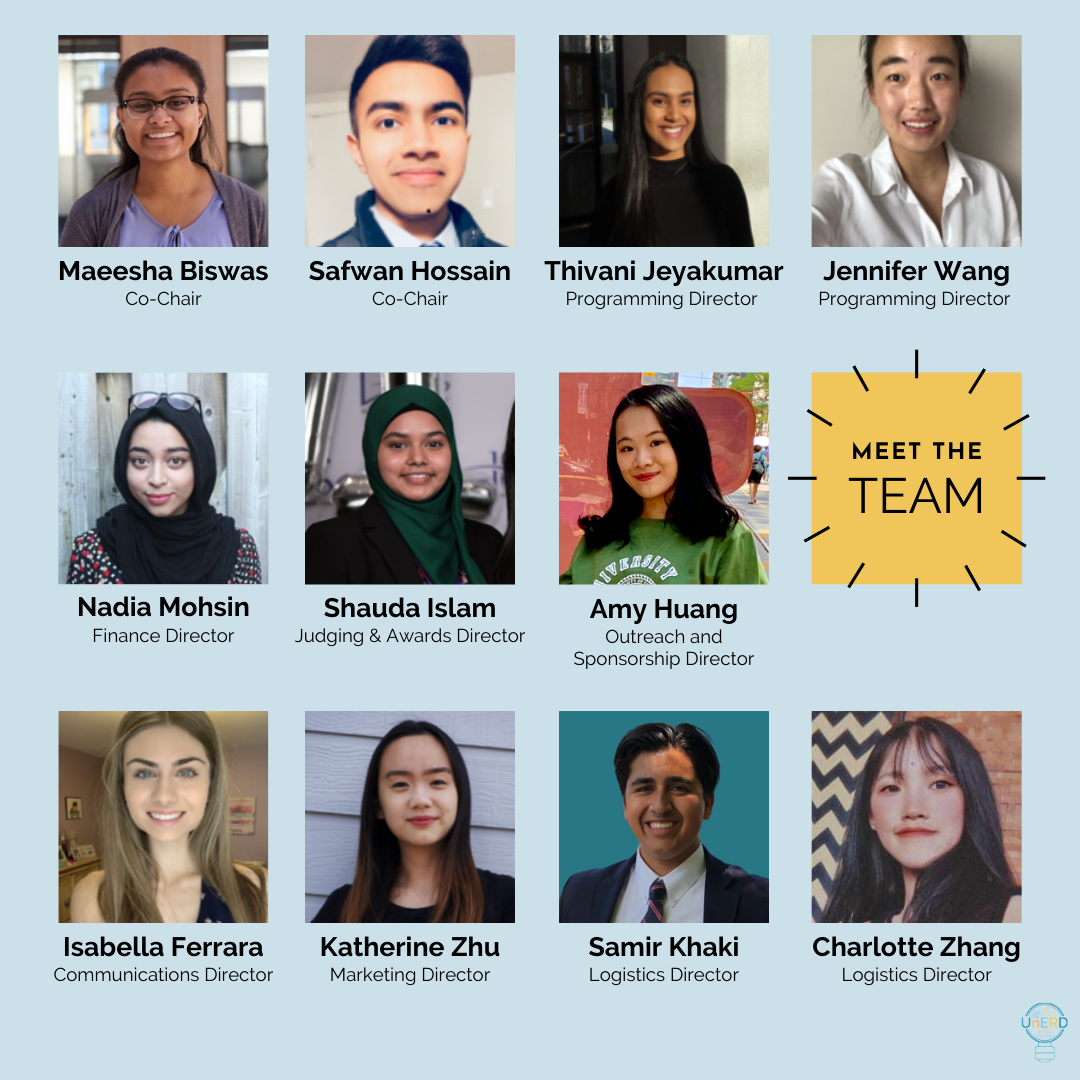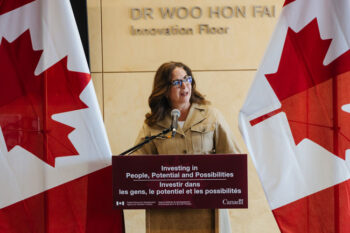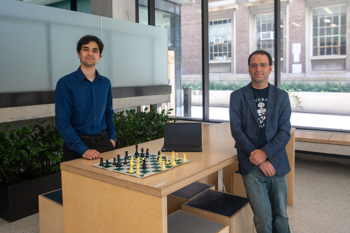For months, the global pandemic has been forcing events that normally take place on the U of T Engineering campus to move online. But for the organizers of the annual Undergraduate Engineering Research Day (UnERD), that shift was a golden opportunity to turn a local event into a global one.
“When we designed this event for virtual flexibility, we were also designing for geographic flexibility,” says Maeesha Biswas (Year 2 IndE), who is co-chairing the conference along with fellow student Safwan Hossain (Year 3 MechE). “We have students presenting at UnERD from across Canada, as well as from China, India, even the United Arab Emirates.”
Each year, dozens of U of T Engineering students spend the summer working in research labs across U of T and beyond. Their projects cover everything from lab-grown tissues for drug discovery to the use of machine learning in natural language processing.
For more than a decade, UnERD has enabled these students hone their skills in scientific communication by sharing their findings through presentations and poster sessions. Participants also have ample opportunities to network, making connections that will help shape their future careers.
Facilitating those chance meetings in an online format was a challenge, but one the organizing committee didn’t shy away from.
“I actually think the creative constraints have bred a lot of innovation,” says Biswas. “Our goal was to provide opportunities for all students — whether they were presenting or not — to meet new people despite being physically distant.”

Using Microsoft Teams, the organizing committee has created open channels to facilitate discussion around particular topics, such as sustainability, data analytics and artificial intelligence, or research during COVID-19. In addition, participants can fill out a survey prior to the conference to be matched with other attendees for one-on-one discussions in a private channel.
The programme also includes a panel session with U of T Engineering alumni who have completed graduate school, which will focus on the various career paths that can follow an MASc, MEng, or PhD in engineering.
As in past years, the event is sponsored in part by STEM Fellowship, a Canadian registered charity whose core pillars include the concept of “STEMpowerment.” The conference’s top researchers will be invited to publish in STEM Fellowship Journal and considered for the organization’s consulting program.
Biswas says the fact that students who are not physically in Toronto can now also participate has changed the dynamic in a positive way. In addition to the roughly 70 students who will be presenting their work via talks or posters, more than 100 other delegates will be joining from around the world.
“The realization of this new possibility of international engagement has been really exciting,” she says. “For future conferences, we could consider a fusion of virtual and in-person elements. This opens up a world of possibilities.”
Register with UnERD 2020 to attend the conference



